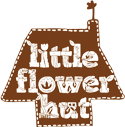Flower Delivery Singapore
Fall Fertilization For Your Garden
Fall fertilization of your garden and flowers is a must if you want a healthy and beautiful garden in spring. For feeding the garden fall is really an ideal season. If this is rightly done then this will be a worthy effort to enhance and beautify your garden.
If you are considering fall fertilization of your garden then below are some of the useful tips that will help you to groom and prepare your garden for the upcoming seasons.
So what are you waiting for just keep reading the blog and find out the answer!!
Facts about fertilizers
There are some very basic facts about fertilizers that you need to know first. Most of the time when you go to the market to buy fertilizers you will notice the letters N, P and K but have you ever thought about their meaning?
Let me tell you!!
The letter N is the very first alphabet in any fertilizer and it signifies Nitrogen amount in the mix of fertilizer. It is significant because it helps in the growth and development of leaves.
Next is the number P which shows the amount of phosphorous, it speeds up the growth of roots in plants.
The third one is the number K which stands for potassium. This one is necessary for the appropriate functioning of cells and maintaining plant health.
Normally when the temperature drops, plants automatically produce different sugars and amino acids that help the plant in resisting the extreme cold conditions. When you properly fertilize plants then it will help the plants to be more resistant to extreme coldness.
Fall fertilization of different plants
The needs of plants are not the same they vary depending upon the type of plant so what are the different types of fertilizers that you should choose? Here are few fertilizers that will help you to provide extra care in the fall season.
Small flowering plants/Perennials
These plants prefer fertilizers with relatively greater phosphate and low levels of nitrogen. If you apply such fertilizers during the fall season then you can have the surety of healthy plants and flowers.
If you fertilize garden perennials during fall then you will definitely get the results during the spring season.
Spring blooming bulbs
Bulbs require phosphorous at the root level to help them get settled before the winters set in therefore fertilizing during the fall season while planting the bulbs is a very effective approach.
You can mix rich compost and soil to give the bulbs enough food to carry till spring. Plant the bulb upside down and also plant them in a hole that is three times deeper than their actual height.
Roses
When fall season starts you will definitely want to stop fertilizing your roses in case you continue fertilizing them new rose bushes will grow and fall is not the perfect time for new growth whatsoever because when frost will come it will freeze and eventually it will die
Grass/lawns
For fertilizing the lawns fall is a very ideal season it is also an ideal season for over-seeding sparse lawn. Once spring season will arrive, all your efforts will be rewarded with lush and thick land that will be envied by your neighbors.
Application of fertilizers
Once you purchase the fertilizers always make sure to follow the given instructions just to make sure that you applied them properly. If you have a granular fertilizer then it will be applied by lightly raking the ground and then the granules are sprinkled on top.
Once you apply it then makes sure to water it properly so that it will penetrate the soil and reach the basis where it will start doing its work.
What are the other ways of fertilization?
If you properly fertilize your plants during fall then this investment will pay off during the spring season. Fall is also another chance and time of the year where you will fertilize your vegetable bed but not in a conventional way.
Green manure that is planted during the fall season will help to enrich the soil in the bed with all the important nutrients. Green manure is prepared in the soil while the soil is green. Planting the cover crops is another very effective way to naturally fertilize in the fall season for abundant crops and yield the following year.
Regardless of the method of applying the results will be so good that you will be proud of putting in all those efforts during the fall season.
Now that you know about fall fertilizers and their application you must be wondering that why you should fertilize your garden during the fall season right?
So let me tell you the 3 main reasons:
- It is a good idea to fertilize your plants and garden during winters because the flowers that blossom in the coming spring will take advantage of the single application of the fertilizer. It helps to enrich the plants with all the required nutrients for growth and development.
- By fertilizing your garden during winters you are also making the required changes to the landscape. You will be able to remove any dried-out stems and also foliage that may be occupying space.
- Fertilizing during the winters or fall will help you to take out and remove bulbs from the ground. Once they are removed you can either plant them in pots or they can be prepared for storage.
The main and most important goal of fall fertilizing is to enhance and promote root development. Once the roots are stronger they will help the plant in water and nutrient absorption and as a result, it will grow bigger and better.
So don’t miss fall fertilizing and enjoy the results later on!!!
